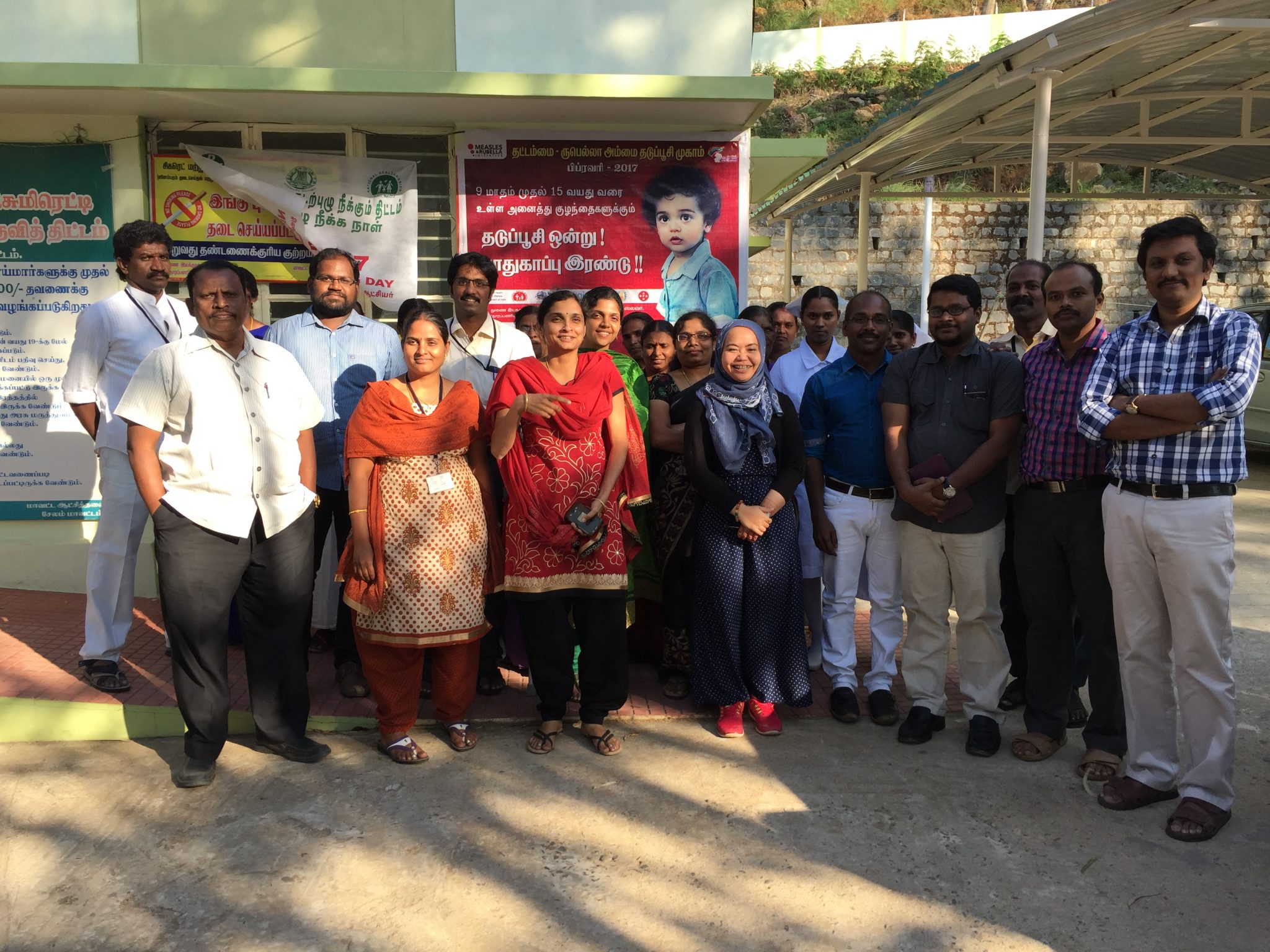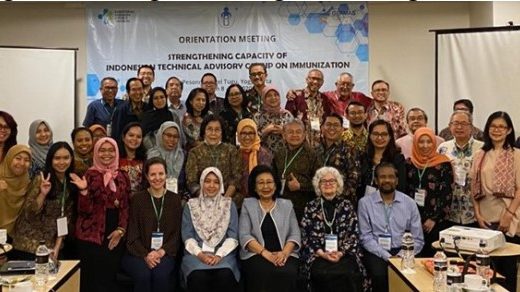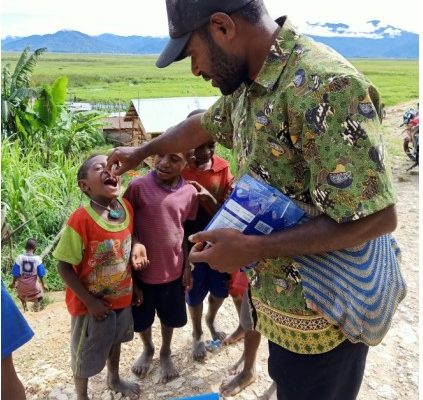Dr. Fina Tams, Mrs. Asmaniar Saleh and Dr. Vinod Bura, WHO Country Office Indonesia
In 2014, Indonesia was ranked fourth in the world in terms of infants not fully vaccinated, with approximately one million infants not vaccinated or partially vaccinated for DTP3 vaccine. Many factors contribute to sub-optimal vaccination coverage, including gaps in knowledge and skills among EPI staff, inadequate supervision and programme monitoring.
The Ministry of Health (MoH), Indonesia and WHO Indonesia have partnered with the US Centers for Disease Control and Prevention (CDC) in the Strengthening Technical Assistance for Routine Immunization Training (START) project. The objective of the START project is to build the capacity of district and health facility immunization staff to improve EPI planning, monitoring, and service delivery.
Phase One of the programme is being implemented in two provinces with low coverage: seven districts in the Banten province and five districts in the North Sumatera Province from 1 September 2016 to 28 February 2017.
The project will focus on some of the under-utilized learning methodologies, including mentoring/coaching, direct on-the-job training, and multiple follow-up visits to health centers. This design is intended to: 1) help increase the train-ees’ knowledge and skills, and; 2) to help support the sustained application of these abilities compared with traditional training methods of workshops and limited follow-up/feedback.
To ensure effective programme implementation, ten suitable technical assistance (TA) consultants have been identified, oriented, and deployed to support the project. The team of START Technical Assistance (TAs) received an orientation on the project from 22 to 30 August 2016. The orientation of the project was facilitated by the Ministry of Health, WHO, UNICEF, and CDC. Training curricula and practical operational materials have been jointly agreed upon by the project partners including micro-planning, Effective Vaccine Management (EVM) assessment, Local Area Monitoring (LAM) / defaulter tracking, including micro planning sessions and field visits.
A weekly report is submitted by the consultants, analyzed and feedback is provided to ensure timely corrective action. A mid-term review of this project will be conducted by the end of November 2016 to discuss best practices, lessons learned, and challenges.




No Comments